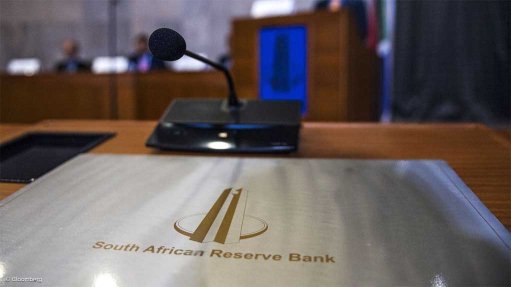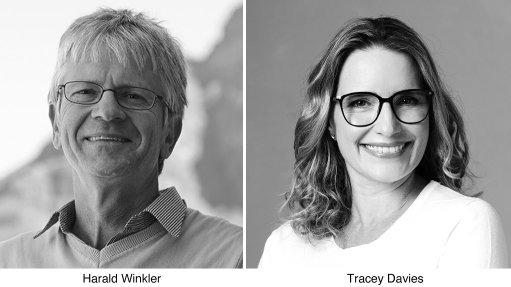A new pan-Africanism to underpin future growth
It is five years since the World Bank stopped producing its ‘Doing Business’ report, citing “problems” with the data in 2018 and 2020. It provided analysts with a comprehensive set of measures to judge improvements or impairments in the business environment, as governments squirmed under its scrutiny every year.
Its credibility rested largely on the World Bank’s ability to access primary data on which to base assessments. But sometimes a single significant news event or story says more about business trends than reams of statistics. One such event was Ethiopian Prime Minister Abiy Ahmed’s opening this month of the $5-billion Grand Ethiopian Renaissance Dam (GERD), which reached its maximum 5 150 MW – doubling Ethiopia’s energy capacity. This game-changing event will improve business operating conditions in Ethiopia and cement the region as Africa’s business powerhouse. East Africa is set to lead sub-Saharan Africa’s return to growth, which the World Bank projects to rise from 3.3% in 2024 to 3.5 % in 2025 and 4.3% in 2026–27.
Freedom of movement of goods, labour and capital has also hit largely unheralded milestones. Hot on the heels of completing the GERD, Ethiopia has secured from the African Development Bank (AfDB) $500-million in credit financing towards the development of a new international airport, Bishoftu International Airport, which is expected to cost $10-billion and be built 40 km south of Addis Ababa. Construction will begin later this year, with first phase completion expected by November 2029.
Across the continent, new airports serving passengers and cargo are replacing airports constructed in the colonial era. Jomo Kenyatta Airport’s new terminals, Bole in Addis, Julius Nyerere International in Tanzania and many other ultra-modern terminals now make business travel easier. Several new airlines are challenging the State-owned model of the post-colonial era. Kenya Airways – privatised in 1996 – opened up the east-west link with a flight to Abuja (Nigeria) almost a decade ago, serving several West African countries. New, privately owned airlines are well placed to benefit under the African Union’s open skies initiative and as Africa’s infrastructure improves. Zambia’s privately owned Proflight has expanded to serve Cape Town, Durban and Johannesburg. Air Ivoire, reconstituted as Air Cote d’Ivoire with Air France-KLM minority capital, runs several profitable routes in West Africa. Yet there is a way to go: businesspeople complain of sometimes having to transit Doha to travel from one African country to another and that the only way to travel between Tanzania and South Africa requires an exhausting 03:00 departure.
Five African governments have made strides in offering visa-free entry to other African countries’ nationals: Seychelles, Gambia, Benin, Kenya and Rwanda. Seychelles last year rescinded a temporary ban on Nigerian nationals and restored full visa-free access to all African nationals. The move is designed to develop intra-African trade, encourage intra-African investment and boost regional tourism. Set against that is the cost and bureaucracy associated with getting travel documents, passports and identity documents – from KS4 500 ($34) in Kenya, through its digital e-citizen site, in as little as ten working days, versus South Africa’s Home Affairs offer of 30 to 45 days for R3 000 ($170). In June this year, the DRC announced that the cost of a passport had dropped from $99 to $75.
Access to capital and the freedom to move capital remain a significant impediment to business, especially start-ups. Regional airline SA Airlink warned in August that it may have to cease selling tickets in Mozambique because of persistent difficulties in repatriating funds generated by ticket sales. Repatriating funds is a perennial problem for businesses operating in countries with exchange controls – handing competitor advantage to countries like Zambia, Botswana and Kenya that have highly liberalised exchange regimes. This has been a long-awaited reform in Ethiopia, which last year overhauled its foreign exchange policies, introducing a market-based exchange rate, easing capital repatriation and scrapping mandatory currency surrender for exporters.
An entrepreneur launching a solar energy project in Sierra Leone recently told me that the opportunity was there, but capital was scarce. He complained that despite significant improvements in business conditions and restored growth, risk perception was unreasonably high. Local banks would not provide long-term financing.
Political instability, corruption and bureaucratic inertia are cited as major impediments to doing business across the continent. A Kenyan investor interviewed for this article complained that, despite all the new infrastructure and digital economy, businesses are hounded daily with aggressive emails from the Kenya Revenue Authority. All too often, corrupt officials demand substantial sums – $6-million, he said – to “move a project along”. The business disruption from the political instability wrought by coups in the Alliance of Sahelian States will be felt for a decade or more. For all his nationalistic rhetoric, Ibrahim Traoré has largely lost control of Burkina Faso to Islamist extremist insurgents. In early September, the UK government issued a travel warning for all of Mali for the same reason.
However, Traore’s brand of pan-Africanism resonates across the continent, inspiring young and old. My Sierra Leone entrepreneur said his peers are buoyed by this new pan-Africanism.
Article Enquiry
Email Article
Save Article
Feedback
To advertise email advertising@creamermedia.co.za or click here
Press Office
Announcements
What's On
Subscribe to improve your user experience...
Option 1 (equivalent of R125 a month):
Receive a weekly copy of Creamer Media's Engineering News & Mining Weekly magazine
(print copy for those in South Africa and e-magazine for those outside of South Africa)
Receive daily email newsletters
Access to full search results
Access archive of magazine back copies
Access to Projects in Progress
Access to ONE Research Report of your choice in PDF format
Option 2 (equivalent of R375 a month):
All benefits from Option 1
PLUS
Access to Creamer Media's Research Channel Africa for ALL Research Reports, in PDF format, on various industrial and mining sectors
including Electricity; Water; Energy Transition; Hydrogen; Roads, Rail and Ports; Coal; Gold; Platinum; Battery Metals; etc.
Already a subscriber?
Forgotten your password?
Receive weekly copy of Creamer Media's Engineering News & Mining Weekly magazine (print copy for those in South Africa and e-magazine for those outside of South Africa)
➕
Recieve daily email newsletters
➕
Access to full search results
➕
Access archive of magazine back copies
➕
Access to Projects in Progress
➕
Access to ONE Research Report of your choice in PDF format
RESEARCH CHANNEL AFRICA
R4500 (equivalent of R375 a month)
SUBSCRIBEAll benefits from Option 1
➕
Access to Creamer Media's Research Channel Africa for ALL Research Reports on various industrial and mining sectors, in PDF format, including on:
Electricity
➕
Water
➕
Energy Transition
➕
Hydrogen
➕
Roads, Rail and Ports
➕
Coal
➕
Gold
➕
Platinum
➕
Battery Metals
➕
etc.
Receive all benefits from Option 1 or Option 2 delivered to numerous people at your company
➕
Multiple User names and Passwords for simultaneous log-ins
➕
Intranet integration access to all in your organisation


















